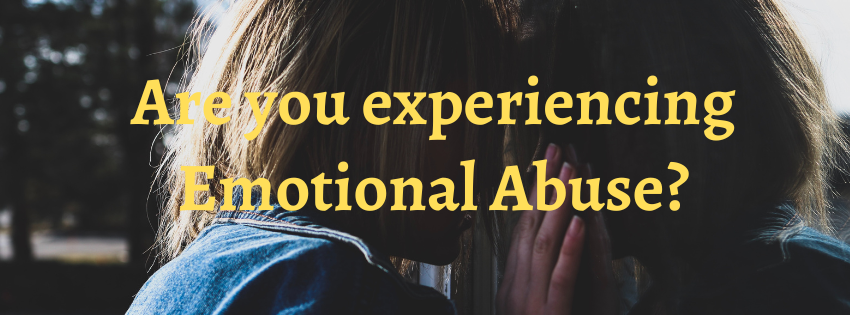Emotional abuse can have a profound impact on women and leave deep scars that last…

Why We Struggle with Healthy Self-Esteem
Others will only respect you to the degree you demonstrate respect for yourself
Self-esteem refers to the way we view ourselves, our subjective perception of our worth as a person, our competence and our ability to succeed in life. It is subjective because it only exists in our head. How we think of ourselves may not match the perceptions of others who know us or reflect accurately our personality, accomplishments and abilities. Self-esteem is at the core of our mental health and is at the root of many issues such as depression and anxiety. While a person can have low self-esteem without being depressed, a depressed person’s self-perception will inevitably be compromised so that they see themselves in a primarily negative light.
The way we view ourselves acts as a magnifying glass through which we interpret our relationships, what happens to us and our own actions. For example, a person that is low on self-esteem will likely turn most trivial mistakes and imperfections into major symbols of personal defeat and shortcomings. Our self-perception dictates our responses to people and events, the ways in which we approach life, and even our hopes and expectations of the future.
Common Pitfalls for a Healthy Self-Esteem
Your self-esteem depends on other people’s approval of you. When you excessively evaluate yourself through other people’s eyes, you are walking on very shaky ground. Your emotional wellbeing becomes dependent on what you imagine people think of you, leaving you vulnerable to self-doubt and constant worry when others disagree or seem angry with you.
You base your worth on whether or not you are loved. You see love as a “need” without which you cannot survive, much less be happy. This may lead you to adopt inferior, unequal roles in relationships with people you care about for fear of pushing them away.
You overfocus on achievement and work accomplishments. When you tie your sense of self with what you are able to achieve, you start evaluating yourself in a very restricted way that invariably will lead you to feel pressured and frustrated. Every time you take a break, become ill, or experience a slump, you will be in danger of an emotional crash. Economic and emotional depressions may seem identical to you.
You are a perfectionist. You hold yourself to exceptionally high standards and expect that you should look, feel, think, and behave superbly at all times. Mistakes are taboo, failure is worse than death, and even negative emotions are a disaster. Although you drive yourself at an intense pace, your satisfactions are meager. Once you do achieve a goal, another more distant goal instantly replaces it, so you never experience the reward of getting to the top of the mountain.
Eventually you begin to wonder why the promised payoff from all your effort never seems to materialize. You are living with unrealistic, impossible personal standards, and you need to reevaluate them. Your problem does not lie in your performance, but in the yardstick you use to measure it.
Ways to combat low self-esteem:
- Recognise how you came to perceive yourself so negatively (e.g. family and environment growing up, negative life experiences, childhood bullying, abuse etc.)
- Identify the negative effects of low self-esteem in your life
- Recognise your reactions as a result of negative perceptions and how they impact your life in self-defeating ways
- Identify specific behaviour patterns that reinforce and perpetuate your low self-esteem
- Come up with new, constructive behaviours that can replace old, harmful ones and start putting them in practice
- Begin facing your fears and anxieties which are the driving forces for anyone with low self-esteem
- Formulate mental strategies to battle entrenched negative perceptions
- Practice, practice, practice!



